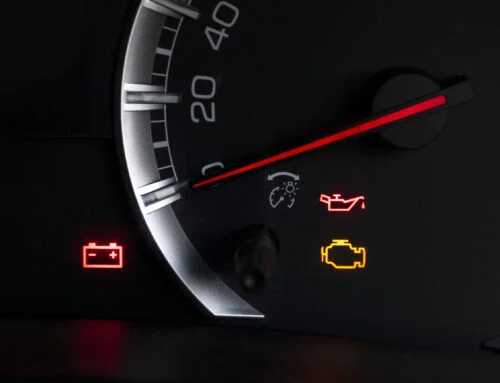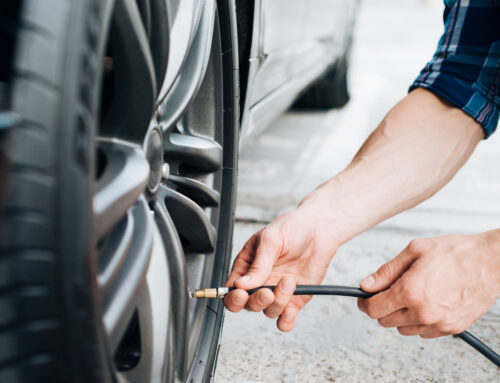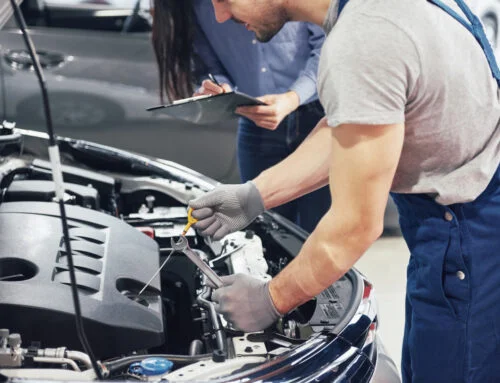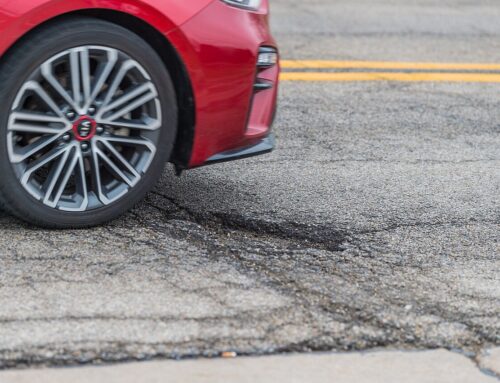Car breakdowns are an unfortunate reality that every driver wants to avoid, especially in challenging weather conditions or during long trips. While breakdowns can happen unexpectedly, many are preventable with regular maintenance and proper vehicle care. Taking proactive steps can save you the headache of being stranded on the roadside, waiting for assistance, and can also prevent costly repairs. Here, we’ll cover essential maintenance tips that will help keep your car in optimal condition, reduce the risk of roadside emergencies, and ensure that each journey is as smooth and safe as possible.
Regular Oil Changes and Fluid Checks
One of the simplest yet most crucial maintenance tasks is keeping up with regular oil changes. Oil lubricates the engine, reducing friction and helping it run smoothly. Without adequate oil, the engine can overheat, potentially causing a breakdown or severe engine damage. Most vehicles require an oil change every 3,000 to 5,000 miles, though newer models may go longer. Alongside oil, it’s essential to check and top up other fluids—coolant, transmission, brake, and power steering fluids—each of which supports different functions in your vehicle. Low or old fluids can lead to overheating, impaired handling, or even brake failure, which could leave you in a dangerous situation on the road.
Battery Care and Replacement
Car batteries generally last three to five years, but factors like extreme weather and frequent short trips can shorten their lifespan. It’s wise to check your battery’s health annually, especially before winter, as cold weather can drain battery power quickly. Many auto parts stores offer free battery testing, which can help you identify if it’s time for a replacement. Additionally, keep battery terminals clean and free from corrosion, which can affect performance. Investing in a quality jumper cable and knowing how to jump-start your battery can also be helpful in a pinch.
Inspecting Tires and Tire Pressure
Your car’s tires are its only point of contact with the road, so maintaining them is critical. Worn-out or improperly inflated tires increase the risk of blowouts, which are not only inconvenient but dangerous. Check tire pressure regularly—most cars have a recommended PSI (pounds per square inch) listed in the owner’s manual or on the driver’s side door frame. Improperly inflated tires can affect fuel efficiency and handling. In addition, ensure tire tread depth is adequate, especially in rainy or snowy seasons. Consider rotating your tires every 6,000 miles to promote even wear, which extends their lifespan and maintains a safer driving experience.
Brake Inspection and Maintenance
Brakes are essential for vehicle safety, and worn brakes can lead to accidents or breakdowns. Squeaking, grinding noises, or a “spongy” feeling when pressing the brake pedal indicate potential brake issues. Many mechanics offer free brake inspections, which include checking brake pads, rotors, and fluid levels. Staying ahead of brake maintenance not only keeps you safe but also saves money, as delaying brake repairs often leads to costlier damage. Replacing brake pads and worn-out parts on time can prevent sudden failure and help you avoid the need for roadside assistance.
Keep an Eye on Belts and Hoses
Belts and hoses may not be the first thing that comes to mind for maintenance, but they play a crucial role in keeping your vehicle running. Hoses carry essential fluids, like coolant, to different parts of the engine, while belts power important systems such as the alternator and power steering. Over time, these components can wear out, crack, or become loose, which can lead to overheating or a loss of power. Inspect belts and hoses periodically, and if you see signs of wear, have them replaced by a professional. Proactive care can prevent sudden breakdowns that often require towing.
Regular Air Filter Replacement
Air filters protect your engine by trapping dust and debris before they enter. Clogged or dirty air filters reduce engine efficiency, which can lead to overheating or other performance issues. Check your air filter every 15,000 to 30,000 miles or as recommended in your car’s manual. Replacing a dirty air filter is a quick and inexpensive task that can improve fuel efficiency and prolong the life of your engine. Neglecting this can cause your engine to work harder, potentially leading to roadside problems down the line.
Monitor Warning Lights and Address Issues Promptly
Modern vehicles are equipped with warning lights to alert you to potential issues, from low oil levels to engine trouble. These lights are your car’s way of communicating that something needs attention. Ignoring these warnings often leads to more significant problems that could require roadside assistance. If a warning light comes on, have the issue inspected by a professional as soon as possible. Addressing minor issues before they escalate can prevent unexpected breakdowns and keep you safely on the road.
Prepare for Seasonal Maintenance
Different weather conditions put unique demands on your vehicle. For instance, winter can be tough on batteries and tires, while summer heat can strain your engine’s cooling system. Preparing for seasonal changes by performing additional maintenance, like switching to winter tires or topping off coolant levels, can help reduce the risk of roadside emergencies. Additionally, consider replacing windshield wipers and refilling washer fluid before wet or snowy seasons to ensure maximum visibility during adverse conditions.
Conclusion: Preventative Maintenance Pays Off
While no vehicle is immune to unexpected issues, staying on top of regular maintenance significantly reduces the risk of a roadside breakdown. By performing routine checks on essential components—oil, fluids, tires, brakes, battery, belts, and hoses—you can catch and address problems early, before they become major headaches. This proactive approach keeps your car running efficiently, saving you time, money, and the stress of being stranded.
Incorporating these preventative measures into your routine helps ensure a safer, smoother ride and minimizes the chances of needing roadside assistance. However, it’s always wise to have the contact information of a trusted towing and roadside assistance service handy, just in case. With the right preparation, you can drive confidently, knowing you’ve done your part to prevent breakdowns and keep your journeys as trouble-free as possible.
Stuck on the road? West Vail Towing is here to help! Serving Eagle County, we provide fast, reliable towing and roadside assistance. Call 970-476-3394 to get back on your way safely!






